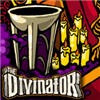

Chatbot listing, virtual agents, virtual assistants, chat bot directory, conversational agents, virtual human news, chatterbot list
NEWS: Chatbots.org survey on 3000 US and UK consumers shows it is time for chatbot integration in customer service!read more..
The Divinator

|
The Divinator is an interactive talking program that responds to personal and spiritual questions in a way all its own. Extensive original content and a unique language parser lets you converse with two Sages (Fleance and Harmonanx, spokesmen for The Divinator who remains silent). Ask it anything, whether serious or playful, but ask from the heart.
The Divinator can be thought of as: 1. A dialogue generator. 2. An oracle. 3. A permanent online art installation piece. 4. A witty and challenging persona. 5. A teacher/advisor that respects the user's mental personal space, since the user's interpretations steer every dialogue. 6. An A. I. simulator based in linguistics and creative writing. 7. An interactive work of literature with mythological and psychological themes to use like Tarot, Astrology, I Ching, etc. 8. A language-based Rorschach alternative (a psychological interpretive tool). 9. A Dadaist interactive language experiment. 10. A Synchronicity generator. 11. An inexhaustible source of wonder. 12. A framework that can make any text conversationally interactive. (Try the "Add Shakespeare" option. Check the box and try with or without other sages) 13. Something else. DISCLAIMER The Divinator is not to be construed as a substitute for professional advice on any matter. By use of this website, you assume responsibility for your interpretation of your conversation with The Divinator and any consequences thereof, and relieve the website creators and the webmasters of any responsibility or liability. Additional comments by developer D.L. Levitt: HISTORY ("The Tin") The Divinator evolved out of lighthearted experiments with a Dadaist method of writing poetry by randomly pulling words from a bag. While sharing a house near the University of Delaware, David L. Levitt and Ren Belieu ripped up sheets of paper and wrote words and phrases on the pieces. Every night for months these slips were randomly pulled out of a shopping bag to create poems. All of the slips were then saved in a gaudy Christmas cookie tin, which, with the help of friends, soon became stuffed. One day Dave decided to ask the tin to describe his date for the evening. Not happy with the drawn response, he then asked it for advice. After repeated inquiries by Dave, Ren, and a number of friends and neighbors, the mysterious object known as The Tin was born. Its uncanny insight sparked long discussions about Jung's Collective Unconscious, Synchronicity, and the possibility of psychic phenomena. More simply put, everyone who used it became fascinated and spooked by the personality projecting out of this mere tin of words. One day an idea arose: Wouldn't it be amazing if The Tin's intelligence could be put even more on target by giving it the ability to distinguish between grammatical question types (who, what, when, where, why etc.) It was instantly decided that a computer program backed by a database was the solution, and a continuous evolution took off from there. THE DIVINATOR (aka "The Silence") The Divinator, a descendant of The Tin, has a knowledge engine with extensive analytical linguistic intelligence that it uses to focus its responses. On the most basic level this means it scans for who, what, where, when, why, etc., but it also "understands" many noun and punctuation cues. It uses this parsing to activate intelligently determined sub-files from which a reply is randomly selected. Mind you, its intelligence aims for inspiration over information. The Divinator itself is the Silence which speaks through a duo of Sages (Fleance and Harmonanx). The response lines of Fleance and Harmonanx were written over many years in the pocket-size notebooks of project founder David L. Levitt. The two characters, one rather noble and the other provocatively trickster-like, represent a yin/yang whole, and Levitt enjoys creating lines for them just as playwrights enjoy their work. He has even been known to alter lines after asking his Sages to comment on what he's writing for them. This allows The Divinator to help create itself. There are currently many thousands of responses in The Divinator, even a few from the original Tin. For over a decade, responses have been added monthly to keep the ideas fresh, and to virtually eliminate repetition. The lines are rich in multiple meaning potential and in themes of universal human concern. Levitt's words provide intruiging content for a new dialogue-creating genre that pays homage to the user's projection of meaning and, being unpredictable, to the muted voice of chance. The Divinator's mind is a well-stocked lake; the more skilled the fisherman, since he/she creates half of every dialogue, the better the catch. The Divinator is unique in overall concept, in its thousands of original response lines, and in its one-of-a-kind language parser that makes it work. Shakespeare has been included as an optional add-on to demonstrate that any author's works can be put into The Divinator framework to create a conversationally interactive experience for the user. As a master of human foibles and the human condition in general, Shakespeare makes a most interesting dialogue partner, but imagine posing questions to the works of ANY author you admire. The Divinator's parser and framework can make that happen. Some have asked whether The Divinator's use of random selection after parsing meant that the conversations would be "just chance". Levitt explained: "partially chance, yes, but I wouldn't use the demeaning phrase Just Chance. Random forces should be recognized as a partner in creation, whether one speaks of The Divinator's responses or the universe's will." He then added, "first it extensively scans the user's entry for keywords and other cues, and only then the random element kicks in to assure that each response maintains an element of surprise". When recently asked whether he wished to share any additional comments on the nature of The Divinator, Levitt simply said "It speaks for itself." The rather private artist behind The Divinator is known to have amassed impressive credentials as a seer/commentator on the human journey. David L. Levitt holds a BA in Sociology and Political Science, and wrote his Masters thesis on persuasive religious communication. He has read the classics extensively and has explored the grand wonders and back streets of no less than a dozen countries both east and west. Over time, his broad studies and travels have enabled him to deliver the lessons of world literature and the mythic spiritual quest with uncommon humor. For his Masters thesis, he "joined" an evangelical Christian campus group, in anthropological fashion, to study firsthand the persuasive features of language used in religious recruitment. Members provided him with tape recorded conversations in which they believed the were evangelizing to a nonmember. He used debate theory to analyze the tapes, quantifying the frequency of various types of Data, Claims, and Rebuttals, and examined the impact they had on the searching human psyche. Technical findings aside, he soon understood the experience as follows: "I came to see the tapes as a sad chronicle of excess longing for certain answers that might instantly banish confusion in the present, and offer guarantees about a hereafter. Yet, the experience energized my belief that the arts could encourage people to affirm ungraspable infinity as a backdrop that provides us our freedom to create ourselves. I aim to uplift the spirit of open exploration." This experience would later inform the creation of The Divinator and the essence of its message. He has also credited the following as influences: "I appreciate the works of Emerson, Stephen Crane, Thornton Wilder, Nietzsche, Ayn Rand, Hesse, Jung, Joseph Campbell, Chuang Tzu, Lao Tzu, Alan Watts, and Eckhart Tolle. The humor of George Carlin and provacateur Andy Kaufman have been an inspiration, as were poetry writing classes with Pulitzer prize-winning poet W. D. Snodgrass." SITE FUNCTIONALITY For full functionality, Click on "Enter Free VIP" on the opening page. If you're a returning visitor that's already registered, just fill in "Email address" and "Password." If it's your first visit, then click on "Click here to register". Next you'll fill in four fields, "Email address, Screen Name, Password, and Verify Password." You will then be led to the conversation page where you'll speak with The Divinator. The Divinator conversation page provides a box for entering any question or statement, and four green buttons near the top of the page representing Save, Print, E-mail, and Clear the conversation. After typing an entry, the user simply presses Enter to activate the knowledge engine, which in turn causes a response to appear in the chat-view box. A VIP can also enter multiple user names for times when friends are gathered around The Divinator. Just Click on the arrow next to the primary user's name and then click "New." Both Sages will be active upon entering, but they can be made inactive by clicking on the check mark. Shakespeare can be added by checking the box by his name. The programming for the initial PC prototype was done by Ren Belieu, and Matt Urban and Mobius New Media (http://www.mobiusnm.com) handled the transformation into an online application. Ken Adams served as Artist/Graphic Designer (http://www.k3n.com). COPYRIGHT / TRADEMARK Full Copyright registration has been completed for text, language parser, and art/graphics. Copyright (1999-2008) D.L. Levitt. All rights reserved. "The Divinator", "Harmonanx", and "Fleance" are Trademarks of D. L. Levitt and may not be used without express license from D. L. Levitt. |
5 honors & awards for The Divinator
- Chatterbox challenge 2005 - Best Interface - Silver
- Chatterbox challenge 2004 - Best Interface - 1
- Chatterbox challenge 2004 - Best Interface - Gold
- Chatterbox challenge 2003 - Best Interface - 2
- Chatterbox challenge 2003 - Best Interface - Silver














 Grey out:
Grey out: